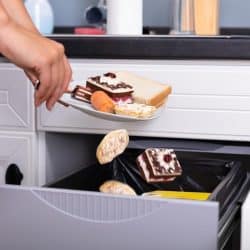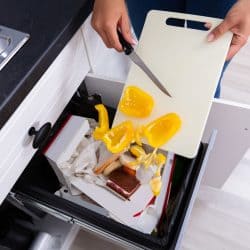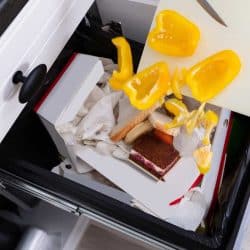When considering adding a trash compactor to your house, one of the first questions that comes to mind is how to wire it. Although it seems intimidating, it will significantly reduce the volume of waste coming out of your home. If you're wondering how complicated adding a trash compactor to your home will be, you've come to the right place.
Yes, electric trash compactors require a dedicated circuit to function safely and correctly. They need a large amount of energy when in use. However, some smaller, portable trash compactors can be plugged into a 115-volt outlet.
Adding a trash compactor isn't a do-it-yourself project; professional services will be required. If you wonder how much installation will run or about the benefits of a trash compactor, keep reading to learn more.
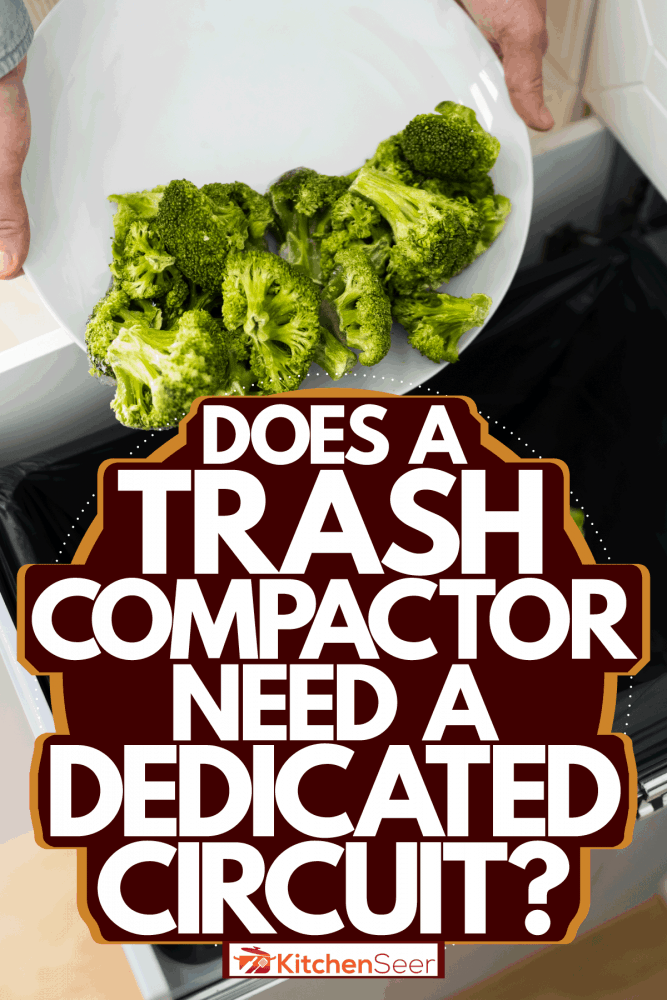
How Many Amps Does a Trash Compactor Draw?
You will want to check the user manual specifications for the specific model you own or plan to purchase. Most trash compactors draw about 5-6 amps when empty, and amperage increases once it makes contact with the trash.
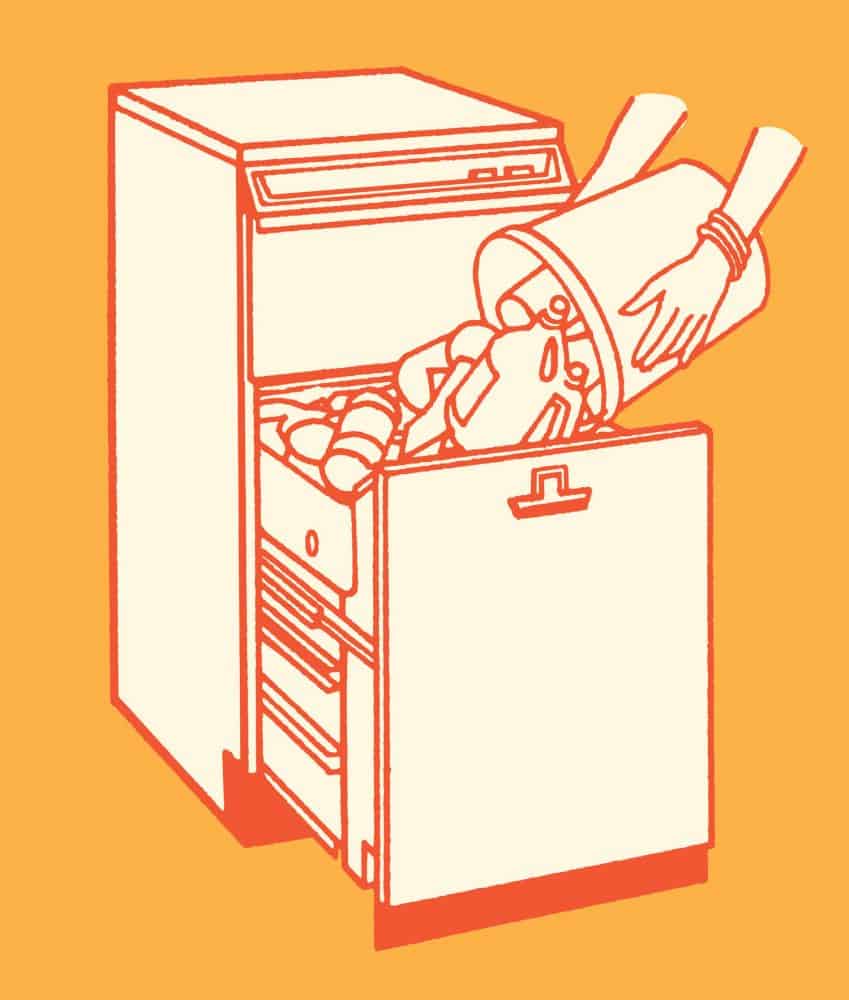
A 15 or 20-amp dedicated circuit should be used, depending on the model requirements and the recommendations of your electrician.
What needs a dedicated circuit?
The trash compactor isn't the only appliance in a home that requires a dedicated circuit. Dishwashers, refrigerators, washing machines, electric dryers, and electric stoves all need their own.
Any large appliance that consumes a lot of energy or constantly runs should be provided with a dedicated circuit. If you lack one for any of these appliances in your home, it must be addressed immediately.
How Much Does an Electrician Charge to Add a Circuit?
The cost will vary depending on where you live, the cost of materials, and the distance the wire needs to be run. It will typically range from $150 to $300, but you can call local electricians and ask them for an estimate. This is not a project that homeowners or amateurs should attempt. Only a licensed and insured electrician should be hired for this work.
How Many Dedicated Circuits Can You Have in a House?
This depends on the size of your home and breaker box, as well as how many large appliances you have. For more specific information about your home's electrical setup capabilities and the requirements of your major appliances, consult a professional electrician. Electricity is hazardous, only certified electricians should attempt working with breaker boxes and wiring.
Built-In Trash Compactors
Built-in trash compactors are installed underneath the counter, much like a dishwasher. Keep this in mind when considering where the electrical work will need to take place. These are great if you have the room in your kitchen to install one. If you want a built-in model, remember to look at models with charcoal filters to help reduce odors indoors.
Portable Trash Compactors
Portable compactors are typically smaller than built-in models. They have wheels that allow them to be easily moved when not in use, and they plug into standard 115-volt outlets. Portable compactors are great options for short indoor space since they can be kept in the garage.
Manual Trash Compactors
Manual options are a way to get a similar effect without such a high price tag. You can purchase manual compactors in which the lid acts as the press, allowing you to crush the trash below by pushing it down. Tampers are available that consist of a steel plate on a long handle, and you push it into the trash can to compress the garbage.
Household Essentials Manual Trash Compactor
This trash compactor doesn't require any electricity, just push the lid down to compress your trash. Click here to see it on Amazon.
How Much do Compactors Cost?
A built-in compactor will run you between $500-$1,000 depending on the model and extra features, not including installation costs. A portable compactor will range between $750-$1,500. Different types of manual trash compactors will cost between $50-$300.
What Can I Put In an Electric Trash Compactor?
Always check with your user manual to be sure, but for the most part, you can place just about anything into a trash compactor that you would typically place in your trash can. Never put any gas or toxic ingredients into the compactor, like spray paint, batteries, or adhesive containers.
What Can I Put in a Manual Trash Compactor?
A manual trash compactor will work on most household trash material. Remember that this is powered by your strength, and not everyone can completely flatten a soup can. Manual compactors are not quite as effective as the powered versions but will still considerably impact the amount of trash leaving your home.
How to Replace Existing Trash Compactor?
Replacing a trash compactor isn't quite as complicated as installing a new appliance. As long as the size and power requirements are the same as the old machine, you can remove the old machine and replace it with the new one.
When you purchase your new machine, check with the store to see if they will take the old machine away for you.
How Does a Trash Compactor Work?
Electric compactors are equipped with a hydraulic ram that presses trash to condense it. Powered compactors have a knob or button to press that will engage the press. The compactor is turned on once or twice a day to increase space in the bin. Manual compactors rely on muscle, requiring you to physically press the trash for a similar result.
How Much Will a Trash Compactor Reduce my Waste?
Some households have reported a 75% reduction in waste volume after adding a compactor. Reducing volume means fewer trips to the curb with trash bags, a lower trash removal bill if you pay by the bag, and less space taken up at home and in the landfills. A compactor is a great addition for anyone who wants to become more environmentally friendly.
Will a Trash Compactor Pay for Itself?
If you pay your trash removal company by the bag, adding a compactor could help to reduce your bill. This could easily add up to big savings after a few years. If you pay a flat rate for trash removal, you will not see a financial benefit from a compactor. It's also wise to account for the cost of compactable trash bags when calculating the potential savings.
How Do Trash Compactors Help the Environment?
By condensing trash to take up less space, you're contributing a lower volume of trash to landfills. This means less overall pollution on the planet. Compacting your trash will reduce the amount of plastic garbage bags in landfills by allowing you to fit more debris into a single bag. Compacted trash is also more hygienic than loose trash since it is easier to transport and handle.
Are Trash Compactors Worth it?
Investing in a trash compactor is a huge step toward reducing your carbon footprint. Many people think this reason alone makes trash compactors worthy of consideration. Because compactors reduce the volume of waste, they reduce the amount of trash bags leaving your home. With fewer bags at the curb every week, you will see financial savings with a pay-per-bag trash company.
Are There Any Disadvantages to Trash Compactors?
A bag filled with compacted trash tends to be heavier than bags filled with loose trash. This can limit who is physically able to carry the garbage outside. Special compactor bags are required for powered compactors, which is another expense to consider. Odor can also be an issue for compactors without charcoal filters since trash isn't being taken out as often.
Start Crushing it!
Now that you know about the different types of compactors available, you're able to make an informed choice on which kind is best for your home. Remember to look closely at safety features when considering your options, especially if you have children. Good luck with your search!
If you have more questions about trash compactors, you may find this article interesting: "How Long Does a Trash Compactor Last?"
While you're looking into trash compactors, check out our article "Do Trash Compactors Need Special Bags?"


![A woman throwing away sliced peppers in to the trash compactor, Do Trash Compactors Need Special Bags? [And How To Measure For Them]](https://kitchenseer.com/wp-content/uploads/2021/08/A-woman-throwing-away-sliced-peppers-in-to-the-trash-compactor-1-250x250.jpg)

